Sexual disorders
Sexual disorders
Sexual disorders
Sexual function
Whether you are single or have a partner, changes in the way you see yourself, your family role, and your patterns of sexual intimacy often occur during and after prostate cancer treatment. Side effects of prostate cancer treatment associated with sexual function may include infertility, decreased libido, or erectile dysfunction. It is essential to remain open and honest and to get timely medical assistance and counseling to deal with these changes.
Infertility
Infertility is the inability to procreate. It can cause a problem for men who choose to treat their cancer with surgery or radiation therapy. The surgery used to treat prostate cancer causes infertility because the source of sperm (i.e. the prostate and seminal vesicles) is removed; the man can still have orgasms, but will not ejaculate. Infertility is also common after radiotherapy because the seminal fluid produced does not transport sperm properly. If you want to have children after your prostate cancer treatment, you should consider freezing your sperm.
Loss of libido
A decrease in sexual desire is a common mental and physical side effect of prostate cancer treatment, particularly with hormone therapy. Blocking the production of testosterone, a hormone that fuels the growth of cancer cells, causes the loss of sexual desire (libido), whether it is following surgical or chemical castration. If the hormone therapy lasts less than a year, it is very likely that the libido returns after treatment. But the longer the hormone therapy continues, the higher the risk that the testosterone level may never return to normal.
Drugs that make erection easier are not helpful when there is no more libido. Nevertheless, despite the absence of sexual desire, patients may still resort to medical means that allow erection (see below).
It is important to discuss this with your doctor. You may need to consult a sex therapist, either alone or with your partner. These professionals can help couples connect, communicate and explore different ways of having intimate relationships.
Erectile dysfunction
Erectile dysfunction is the inability to get or maintain an erection sufficient for sexual intercourse. Even when the surgeon preserves the erectile nerves during the radical prostatectomy, different degrees of erectile dysfunction are a common result. Most men who undergo surgery regain their ability to have an erection over time. However, some men may never regain the ability to have a natural erection.
Men undergoing radiation therapy also experience erectile difficulties that usually diminish with time. After five years, these men have the same percentage of erectile dysfunction as those who have opted for radical, conventional or robotic surgery.
Mechanisms of erection
The penis consists of two corpus cavernosa and a corpus spongiosum. The corpus cavernosum consists of two chambers that contain many blood vessels. The corpus spongiosum is a spongy chamber that contains the urethra, the tube that drains urine from the bladder. When the man is sexually excited, the blood vessels in both chambers of the penis relax, open, and fill with blood. This mechanism triggers a firm and rigid erection. Erectile dysfunction must persist for at least three months before being considered a medical problem.
The impact of erectile dysfunction
Erectile dysfunction can have devastating effects on men struggling with this problem. It causes anxiety and psychological problems. From a young age, men today are exposed to the idea that masculinity is synonymous for an erect penis. That penis performance defines sexuality. This is why it is not surprising to find that the male identity is destabilized when the penis cannot perform.
What the man has taken for granted for so long is no longer feasible. Feelings of shame and mediocrity, loss of self‑esteem, and lack of confidence are negative emotions that only make their situation more unbearable. This is shy it is important for men to have a satisfying orgasm even in the absence of an erection. A weak erection does not mean the end of sexuality.
Talking openly about erectile dysfunction can help alleviate the tension. By living through an experience like this, many men find out just how strong their relationships are and discover that apart from the sex, there are other ways to live a fulfilling life as a couple.
NEVER LOSE HOPE! In most cases, erection problems can be treated. In the meantime, if you need help to get through this difficult period, do not hesitate to talk to your healthcare team, doctors, nurses, or healthcare professionals.
What I need to know
Prostate cancer causes changes in sexual function in general and particularly with respect to erectile function. It is important to keep in mind that the younger you are, the better your chances of regaining the ability to have erections after prostate cancer treatment. Be aware that if you suffer from erectile dysfunction (ED) before treatment, it will usually be aggravated by the treatment. However, it can be fixed or improved after surgery. The information below covers a variety of treatments that may cause sexual dysfunction.
Consequences of erectile dysfunction treatments
Radical prostatectomy
Damage to the nerves responsible for erectile function
- Erectile dysfunction presents immediately after surgery.
- The percent risk of ED will vary depending on the type of surgery, age, and patient’s state of health.
- Potential duration of 1 month to 36 months before seeing an improvement in erectile function.
- In some cases, erectile dysfunction is permanent.
- Note – The percent risk of side effects may vary for each patient.
Radiation therapy / Brachytherapy
Damage to the nerves responsible for erectile function
- The percent risk of ED will vary depending on the type of treatment, age, and patient’s state of health.
- Erectile dysfunction can manifest gradually after treatment. Deterioration can occur over the years.
- At five years, men have the same rate of ED as those who opted for radical surgery.
- Note – The percent risk of side effects will vary depending on the patient.
Hormone therapy
Causes a decrease in libido or sex drive, as well as erectile dysfunction.
- During treatment, no sexual appetite in most patients.
- After treatment, possible restoration of libido, but not in all cases.
Penis shrinkage
Some men get the impression that radical prostatectomy or external radiation therapy has caused their penis to shrink. This may not actually be the case. This impression may be due to the fact that, if you do not have an erection for a while the penis can retract from the lack of blood flow.
In order to prevent the lack of blood flow and oxygen from causing fibrosis (hardening) of the penile tissues, men are encouraged to have an erection as soon as possible after the operation or during and after radiotherapy treatments. This increases the changes of regaining the ability to have a natural erection.
Penile rehabilitation
This involves restoring erectile function in the penis, particularly through with the aid of erectile medications. Be aware that this approach is not universally accepted due to the lack of research on the subject. It is best to have this discussion with your doctor. If your urologist or treating physician does not discuss the subject with you, don’t hesitate to bring it up.
Consequences of sexual disorders
Consequences such as erectile dysfunction, retrograde ejaculation, dry orgasms, and the decrease or loss of libido go beyond the physical and impact our own body image. The impact of these consequences can appear in a number of ways.
Different physical changes resulting from certain treatments
- Changes in body weight and muscle mass with hormone therapy
- Breast enlargement with hormone therapy
- Testicular loss or atrophy due to certain drugs
- Loss of bladder control with radiation therapy
- Erectile dysfunction following surgery, radiotherapy / brachytherapy, hormone therapy
Some are temporary, others last for a long time, and some are permanent. Regaining your ability to have an erection is not enough, masculinity itself needs to be redefined and rebuilt.
Non‑physical consequences
- Loss of self‑esteem
- Isolation
- Depression
- Performance – obligation
- Perception of sexuality
- Unrealistic expectations – high demands
- Impact on marital life / sexuality
- Financial impact: oral treatments, injections, pumps, etc.
Psychological care from a sex therapist includes sexual education and support. Do not hesitate to ask for references for this health professional. Some are accessible within the hospital center you are visiting while others will be in private practice. The advantage of the private sector is that you will have a get an appointment faster than in the public sector. The disadvantage is the cost. If you can afford it or if your insurance covers this type of consultation, do not hesitate.
Sex therapy can give results on various levels
- Rehabilitation
- Regaining a virile body image
- Giving your partner pleasure despite ED
- Improving intimacy
- Redefining sexuality, despite a decreased libido
- Fighting against anxiety and depression
Managing erectile dysfunction (ED)
If you have ED as the result of prostate cancer treatment, it can be yet another source of frustration in your life. But there are a few ways you can help gain control over your situation:
Don’t give up
Don’t assume you have a permanent problem and nothing can be done. Depending on your treatment you may recover your erectile function, but it can take a long time. In the meantime, try to control your anxiety around sexual encounters and activity, which can make ED worse.
Involve your partner
Honest and open communication can help make sure they know that this isn’t a sign of diminished interest in them, and can help you explore other ways to satisfy one another. Treatment is often more successful when a man involves his partner.
Manage your mood
Stress, anxiety and depression can seriously impact intimacy and erectile function. Be open with your healthcare team about all the issues surrounding your treatment and recovery.
Sex therapy support
A sexologist can help the patient and couples overcome and resolve their physical problems or learn to live with them. For example, sex therapists can help the patient integrate medical treatment with their sex life when the man is no longer able to have an erection naturally. The sexologist can also help them explore other facets of their sexuality and other way to express their affection.
Sexuality can take on different forms and remain just as fulfilling for both partners. When there is no sex drive because of hormone therapy, the sex therapist helps both the patient and couples deal with the situation in order to avoid suffering, discouragement, and guilt. You will have access to concrete strategies for resolving potential conflicts with your loved ones and those who care about you.
Treatment of ED
Sildenafil, vardenafil, and tadalafil
Main oral medications in the treatment of ED. They act on blood vessels to facilitate blood flow and enable erection. All require sexual stimulation to be effective.
Advantage
- Minimally invasive treatment (easy to take)
- Maintains spontaneity
- Discreet
Disadvantage
- May not work
- Side effects (headaches, etc.)
- Cannot be taken in combination with nitrate derivatives
- Does not work if erectile nerves have been removed
- Costs: $200 to $415 per month (average of $350 per month)
Penile injections
They involve injecting medication into the penis with a fine needle before sexual intercourse. The medication increases the amount of blood flowing into the penis, allowing for an erection. TriMix and QuadMix are more effective than Caverject. If your pharmacist does not stock this type of injection, they can order it from another pharmacy, specifying to add a pain reliever, such as Xylocaine, to the mixture.
Advantage
- High success rate
- Can work even if erectile nerves have been removed or damaged
- Useful if a man cannot take oral medication
Disadvantage
- Pain at the insertion point or in the penis
- Risk of prolonged inappropriate erection
- May not work
- Scar tissue in 10 to 15% that can cause curvature of the penis
- Fainting (rare)
- Costs: Approximately $40 to $75 per injection, depending on the dose
MUSE applicator
Application of medication through the urethra (where urine comes out), followed by rubbing the glans to aid absorption. The administered medication causes relaxation of the muscles in the penis, increasing the amount of blood flowing into the erectile tissue.
Advantage
- Moderate success rate
- No needles
- Can work even if erectile nerves have been removed or damaged
- Useful if a man cannot take oral medications
Disadvantage
- Pain in the penis, urethra, or testicles
- Painful erection
- Tingling in the urethra
- Risk of prolonged inappropriate erection
- May not work
- Rarely prescribed due to stock shortage
Vacuum or penile pump
The penis pump works by creating a vacuum that allows blood to flow into the penis. This operation relaxes the erectile tissues of the penis under the pressure thus created. It is advisable to opt for a medical-grade pump.
Advantage
- Good success rate if used correctly
- Does not require medication or surgical intervention
- Costs: $300 to $600 for a quality pump
Disadvantage
- Can cause bruises
- Cannot be worn for more than 30 minutes
- Cannot be used with anticoagulants
- The penis may feel cool to the touch, which does not provide a natural sensation
Penile prosthesis (or implant)
Penile implants replace the erectile tissue of the penis. There are 3 types of possible implants:
- Three-piece inflatable penile implant
- Two-piece inflatable penile implant
- Malleable penile implant (semi-rigid or “concealable”)
For example, if you opt for the inflatable prosthesis, you will need to activate the pump placed in your scrotum to achieve an erection and deactivate it after sexual intercourse. Since their placement is surgical and due to their cost, prostheses often represent a last resort solution.
Advantage
- High satisfaction rate
- Single surgery
- Avoids the risk of a curved penis caused by penile injections
- More relaxed foreplay without change in skin sensation
Disadvantage
- Few specialists perform this surgery
- Very long waiting list
- Infection in about 2% of cases, requiring removal of the prosthesis
- 15% of implants fail over time
- Surgery is required to repair/remove the prosthesis; this could be embarrassing with a new partner
- 15% of men who opted for this type of surgery have never tried it with a partner.
- Costs: If the surgical procedure is reimbursed by the RAMQ, the best prosthesis is at the patient’s expense and costs between $6,500 to $8,000.
Additional information
Before trying any of the above treatments, you must absolutely discuss with your urologist the therapeutic options best suited for you. Keep in mind that you may need to try your prescribed medication several times; it may prove effective on the 6th attempt… and not the first time.
This general information is provided for informational purposes only and does not constitute a recommendation. It is possible that your health condition may prohibit access to the treatments we have just described; some may even endanger your life. As always, we encourage you to discuss openly with your urologist.
Nevertheless, here are some resources for you:
Intimacy as a couple
It goes without saying that men need to continue having intimate relations with their partner despite their inability to have full sexual intercourse. It is completely normal and healthy. Touching, kissing, holding hands, walking together, talking to each other, or simply being together can be immensely satisfying and help you recover.
Maintaining a fulfilling sex life
Points to keep in mind when you are ready to have sex again.
- It is advisable to wait 4 weeks before having sex for the first time after surgery. You do not need to wait after radiation therapy.
- Sexual intercourse will not cause recurrence.
- Be prepared to laugh at the unexpected. Sex should not be a “serious affair” or a “marathon”. Allow yourself to stop and rest if you are tired.
- Sexual intercourse should not cause discomfort or pain. If this happens, talk to one of our doctors or nurses. Fear of pain can lead to sexual problems.
- Performance anxiety can occur if you are too focused on your erection.
- Skin is the biggest sexual organ and the brain is the most important. By using them, the sexual possibilities are limitless.
- Being diagnosed with cancer should not dictate what a man can or cannot do. Use your imagination and humour to explore new ways to maintain intimacy.
- You should know that very few couples separate because of prostate cancer. In fact, this ordeal can actually bring you closer together since cancer forces you to communicate, break taboos, and use your imagination.
If you are single
Several men who have had prostate cancer can tell you that their life has never been the same.
Our priorities, values, and lifestyle change and we no longer see life in the same way. But you should know that you do not need to give up on love just because you have prostate cancer. On the contrary, it could become the most important thing in your life. Here are some guidelines to keep in mind when looking for your next partner.
Love is an open door
Even if you don’t believe in it anymore, tell yourself that love is always open to you, even after prostate cancer treatments. The only person that can stop you from meeting the love of your life is yourself. Keep an open mind and stay alert, you could meet that special someone.
Ready for love after prostate cancer? Advice for single men…
Additional Information - Side effects
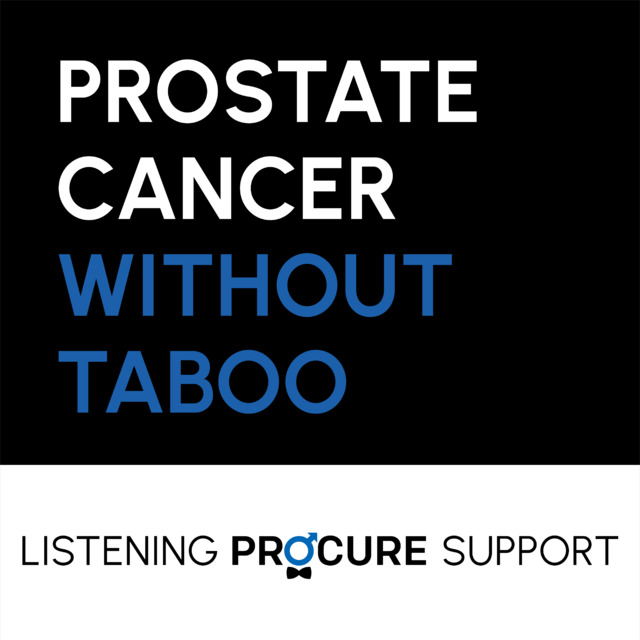
Urologist’s advice: Treatments and information on prostate cancer
Learn more about the role of the urologist and the importance for a patient to gather adequate information after receiving a prostate cancer diagnosis.
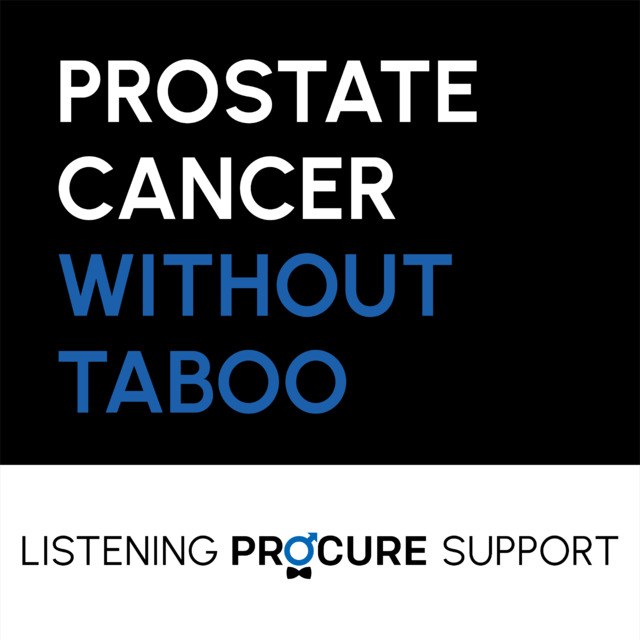
How I coped with prostate cancer
A man with prostate cancer shares the challenges of his cancer experience.

Expert Opinion: Prostate Cancer and Sexual Disorders
How to manage erectile dysfunction after treatment?
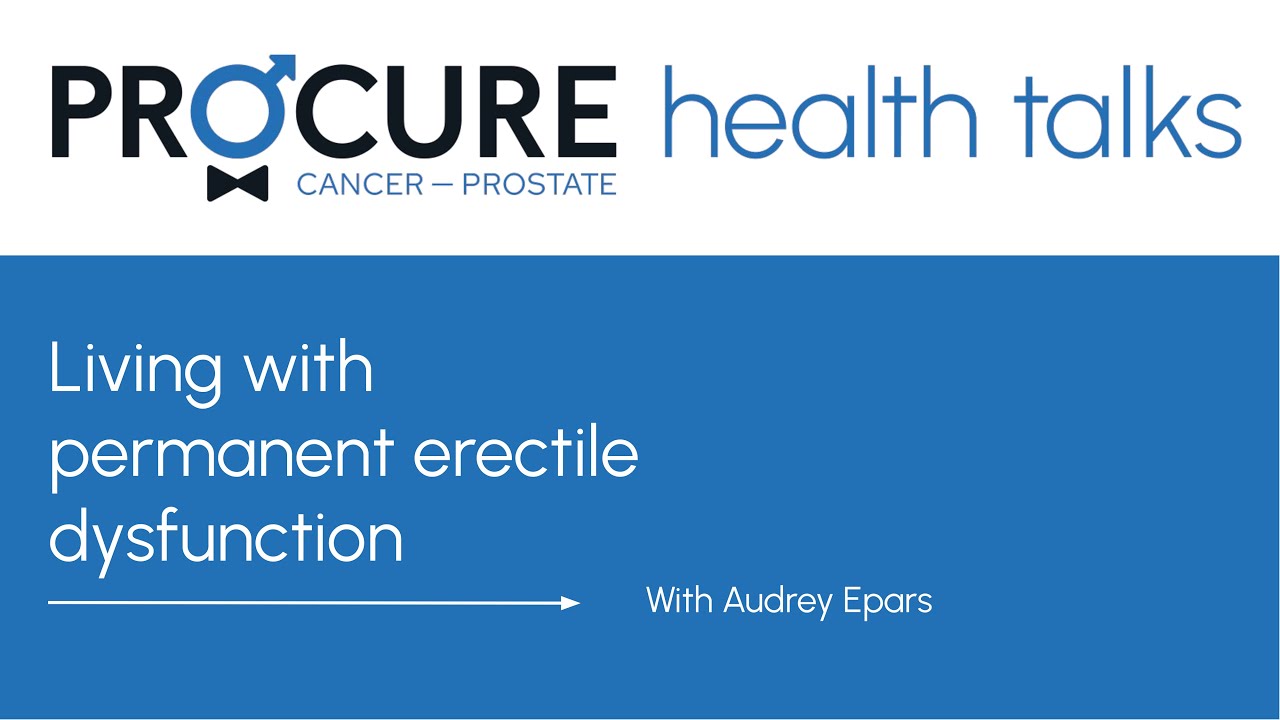
Living with permanent erectile dysfunction
Managing permanent ED after prostate cancer is delicate. Discover strategies to cope with it.
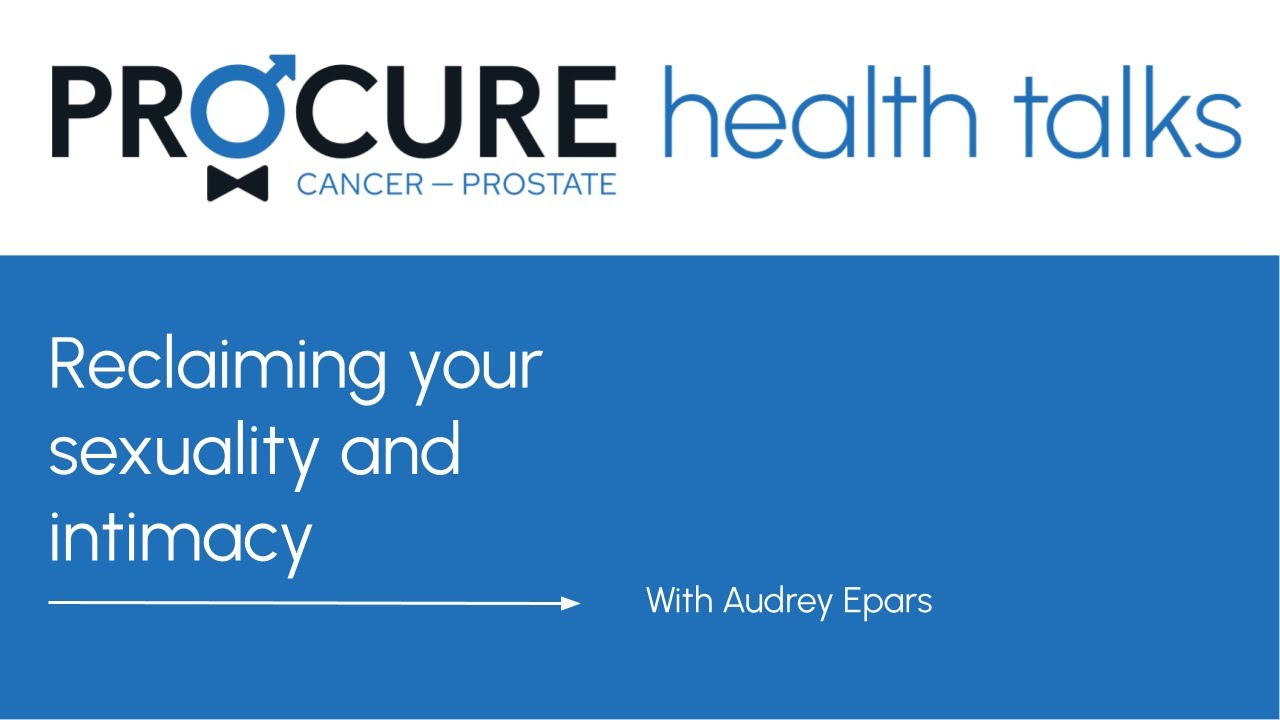
Temporary erectile dysfonction due to treatement
Watch this webinar for advice on regaining your sexuality and redefining intimacy and self-image after prostate cancer treatment.
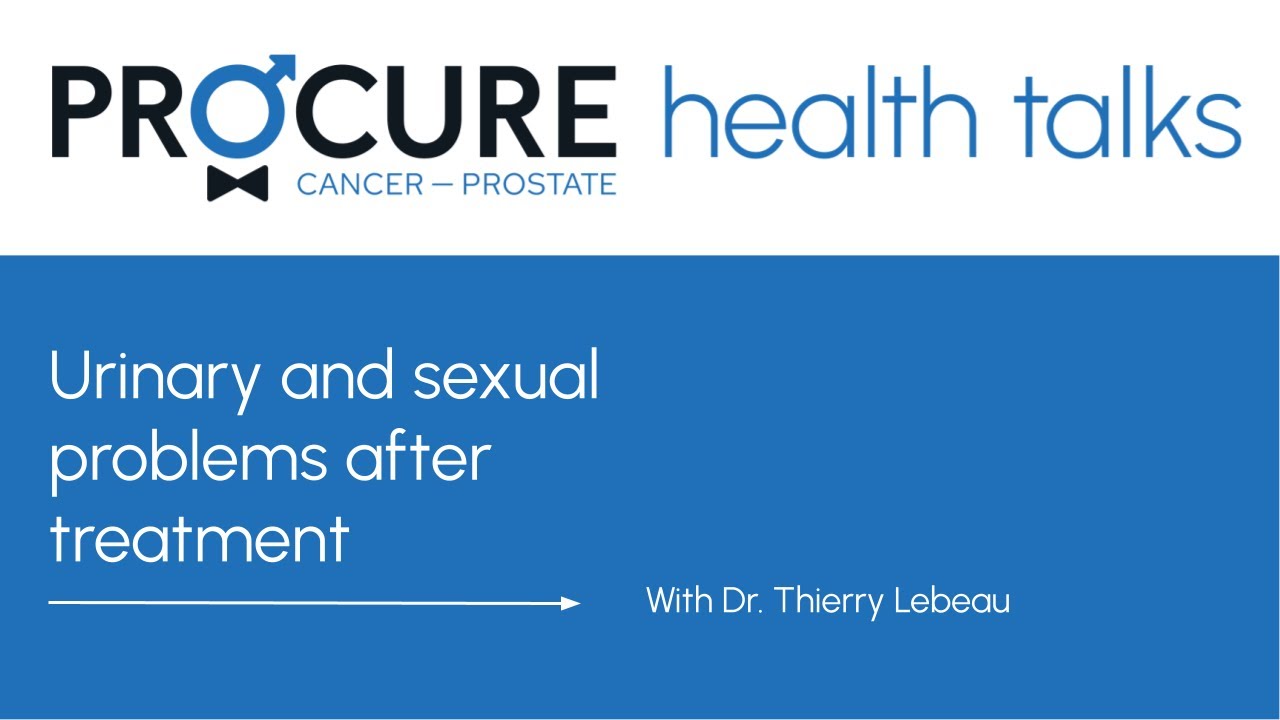
Urinary and sexual problems after treatment
Prostate cancer treatments can lead to side effects, such as erectile dysfunction and urinary incontinence, which vary in intensity and duration.
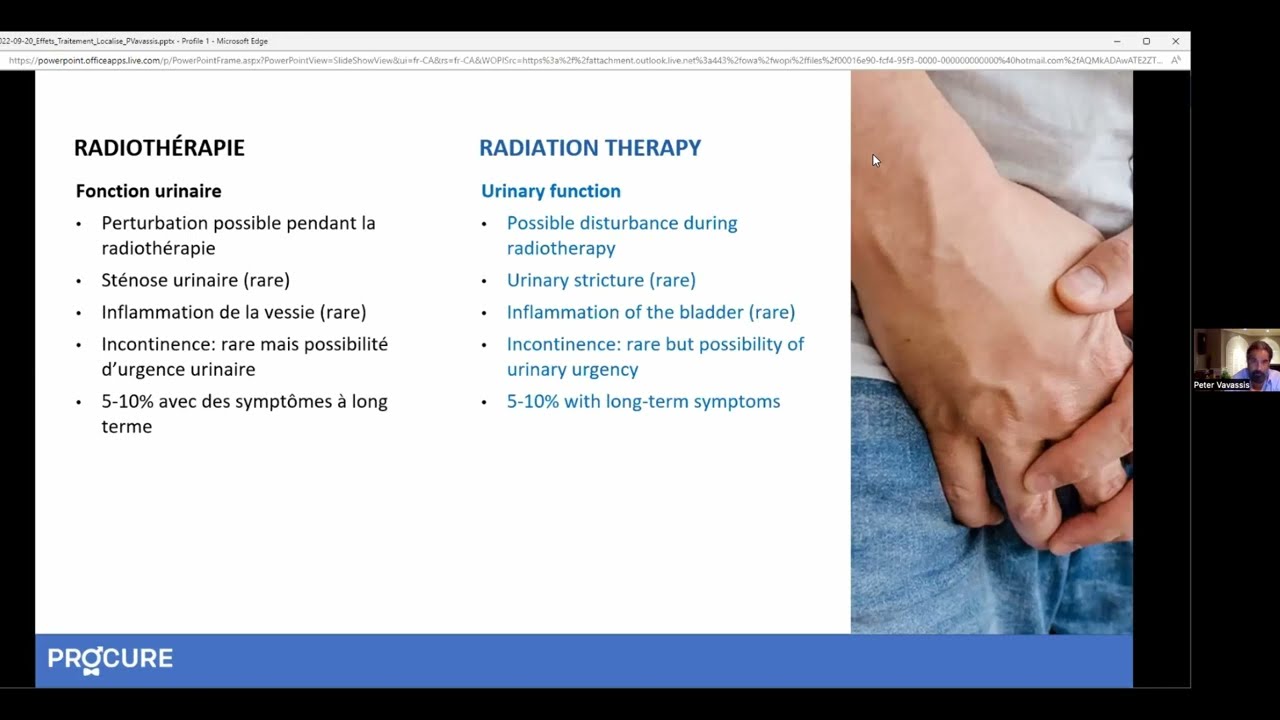
Urinary, sexual or intestinal problems
This webinar offers guidance on managing urinary, erectile, and intestinal functions after prostate cancer treatment.
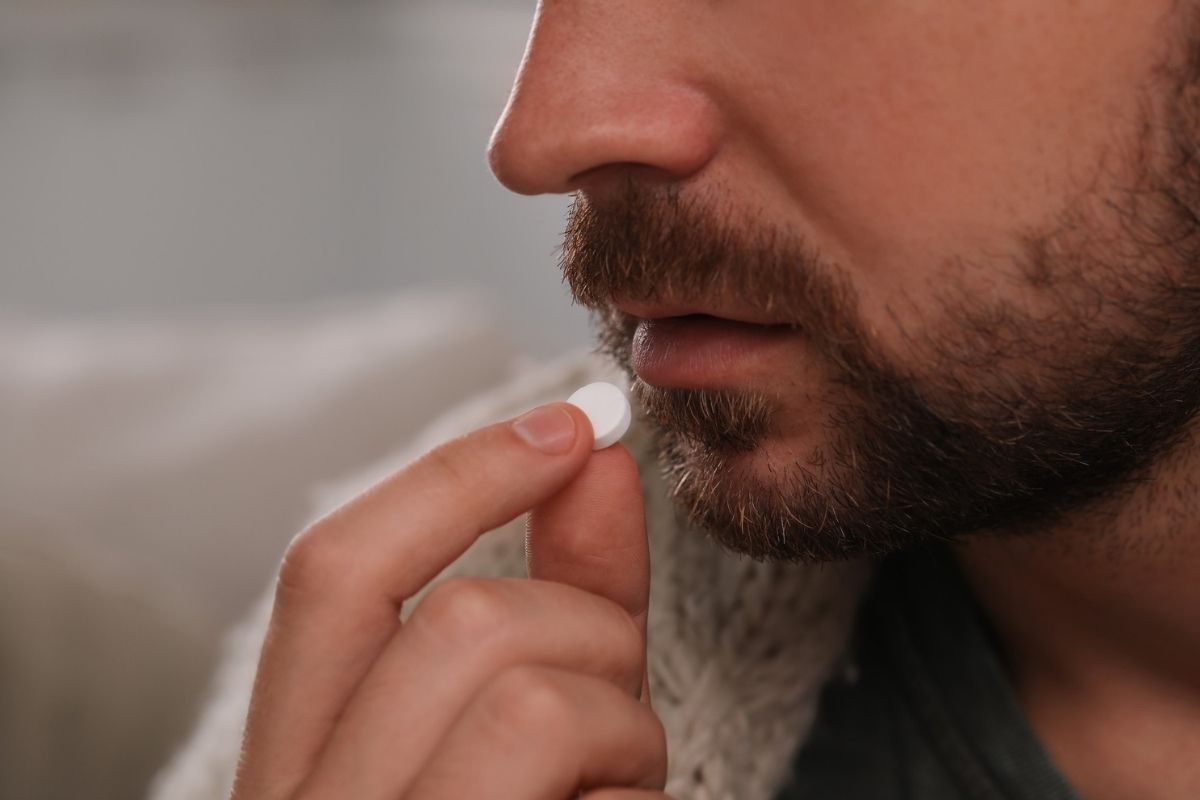
Do your medications cause erectile dysfunction?
Aside from prostate cancer treatments, if you experience erection problems such as erectile dysfunction, it’s crucial to understand that this can be related to various causes. Often, erectile dysfunction is triggered by reduced blood flow to the penis or issues affecting the nerves responsible for erection. These situations frequently arise from other health problems such […]
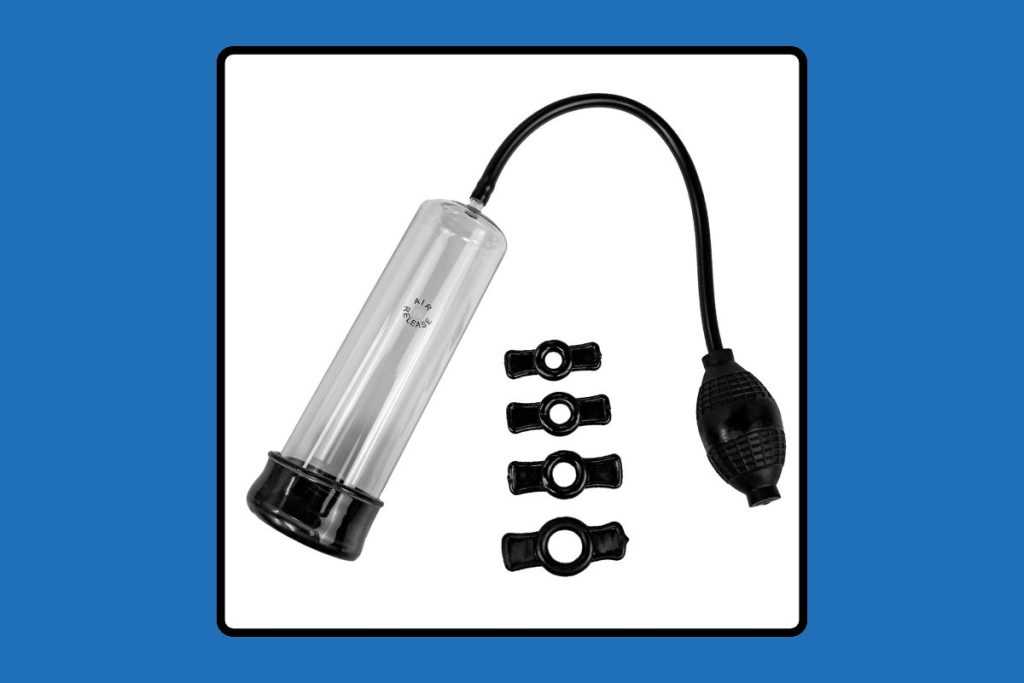
Vacuum erection devices: What you need to know
Vacuum erection devices (VEDs), or penile pumps, are a non-invasive solution for men experiencing erectile dysfunction (ED), particularly after radical surgery to treat prostate cancer. These devices can help restore erectile function, improving quality of life and intimacy. Let’s explore what to look for when buying a VED, the benefits of choosing a medical-grade device, […]

Living with permanent erectile dysfunction in 5 points
Living with permanent erectile dysfunction in 5 points outlines the essential considerations in navigating this reality. These tips serve as guiding principles to assist individuals, whether they are in a relationship or facing this situation alone. Healthcare professionals are here for you Sexuality is ever-present; it does not disappear with permanent erectile dysfunction. Consult healthcare […]

Sexuality and intimacy in 5 points
Sexuality and intimacy in 5 points addresses specific challenges and opportunities that may arise after treatment for prostate cancer.

Orgasm without erection?
It is entirely possible for a man to achieve orgasm without an erection or penetration and there are several ways to achieve this.

Food tastes funny…!
I feel like one of the worst effects was losing my taste buds. Everything I tried to eat tasted funny. So why food tastes funny?

I am a little bit diabetic
My doctor informed me that I am a little bit diabetic and that I will have to make important changes to my lifestyle.
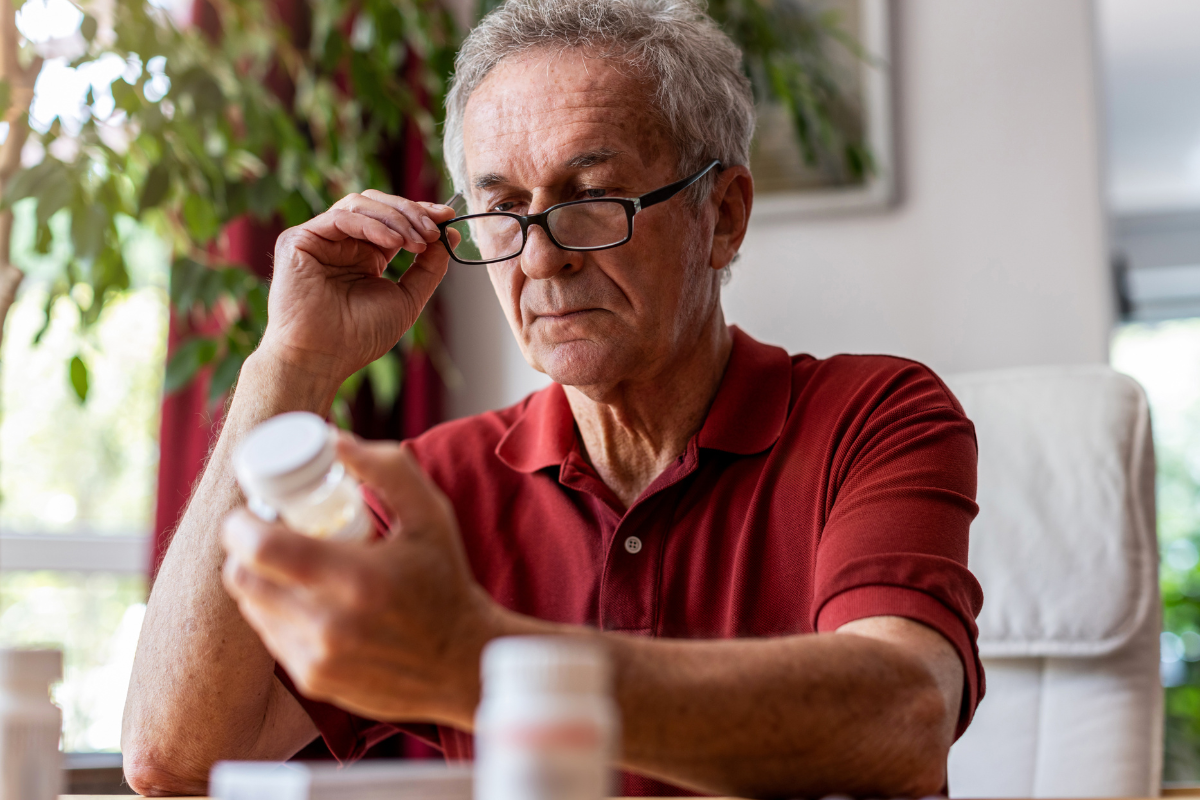
Will the effects of hormone therapy disappear?
Hormone therapy is used to prevent your body from secreting or using testosterone. But what about the side effects of hormone therapy?

Why am I urinating my semen
If you are wondering why you urinate your semen, the answer is that you have what is called retrograde ejaculation.
Sources and references
Last medical and editorial review: April 2024. See our web page validation committee and our collaborators by clicking here.


